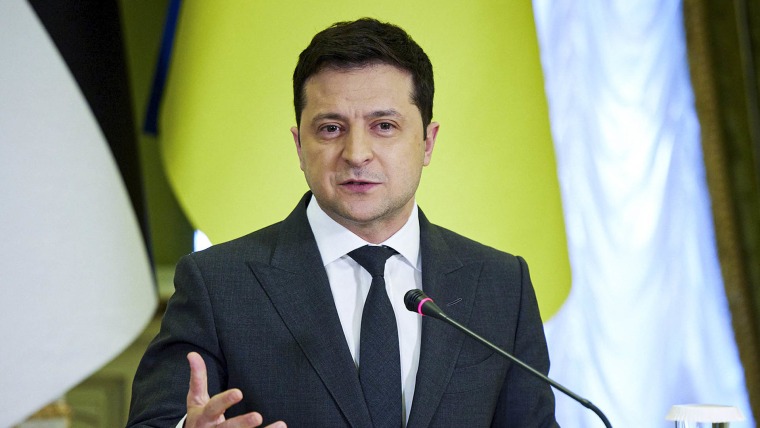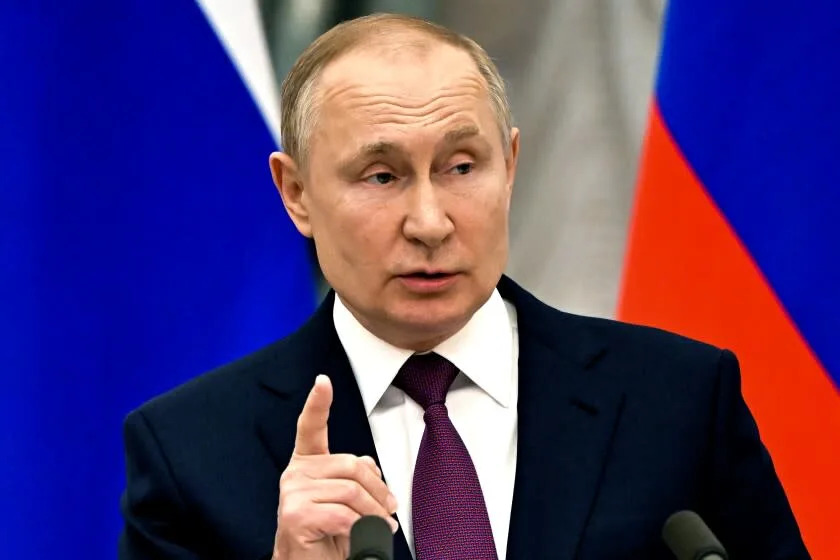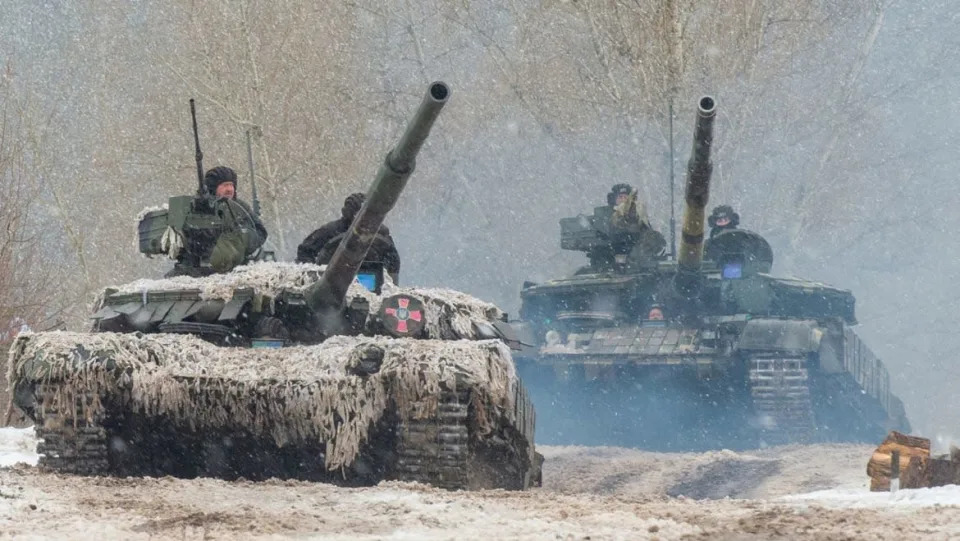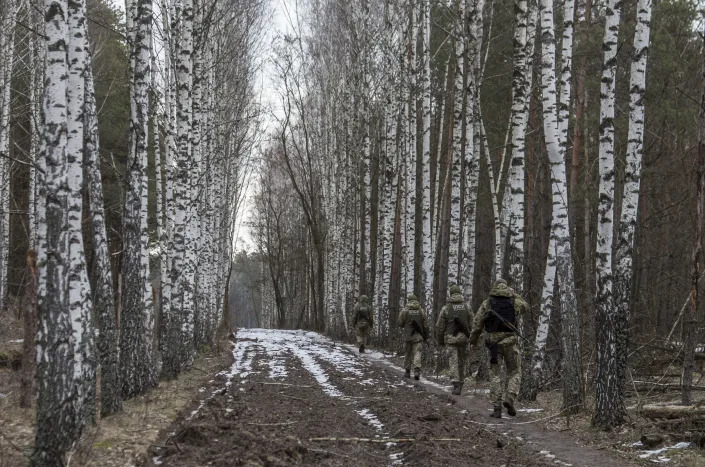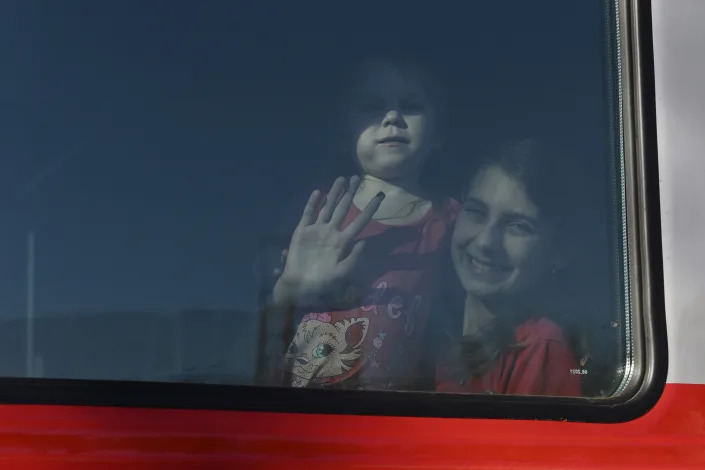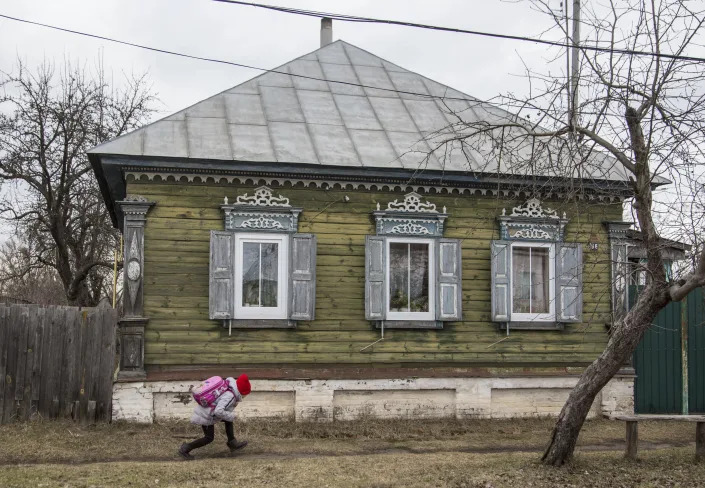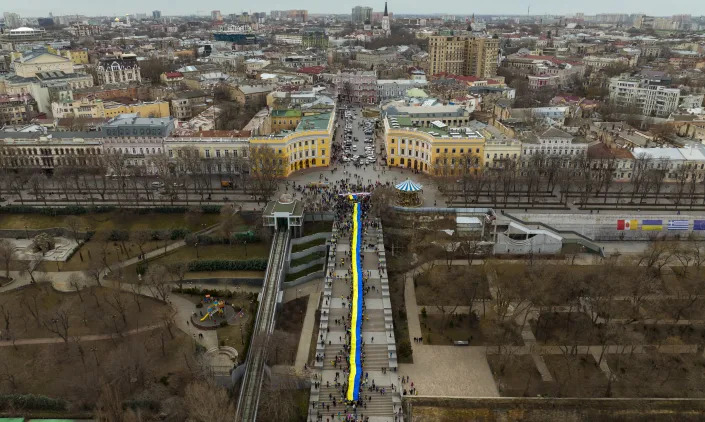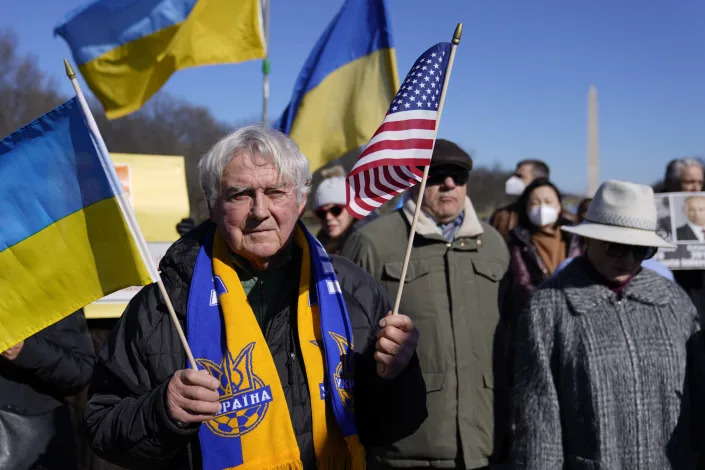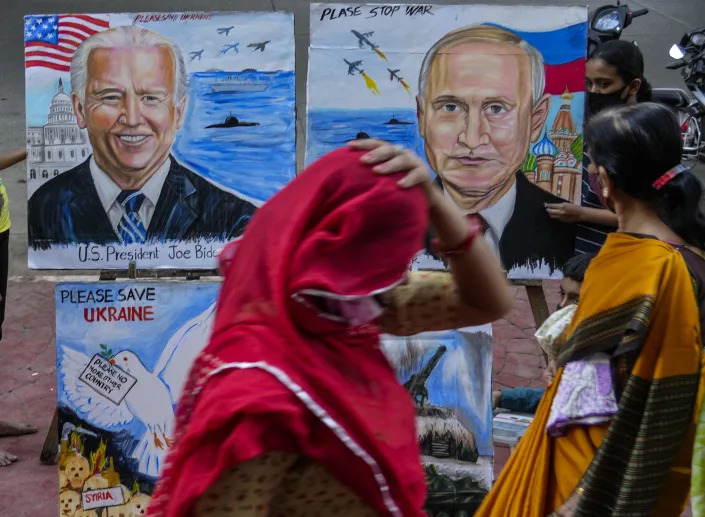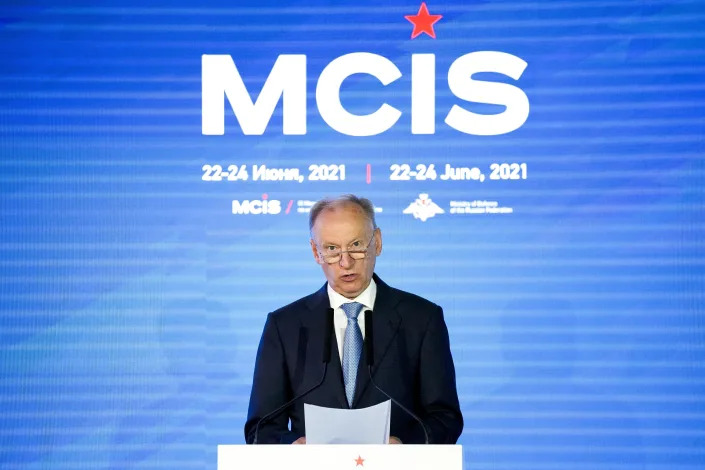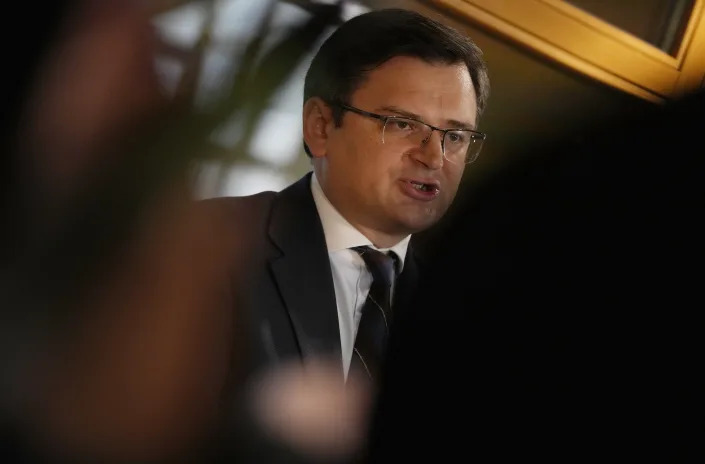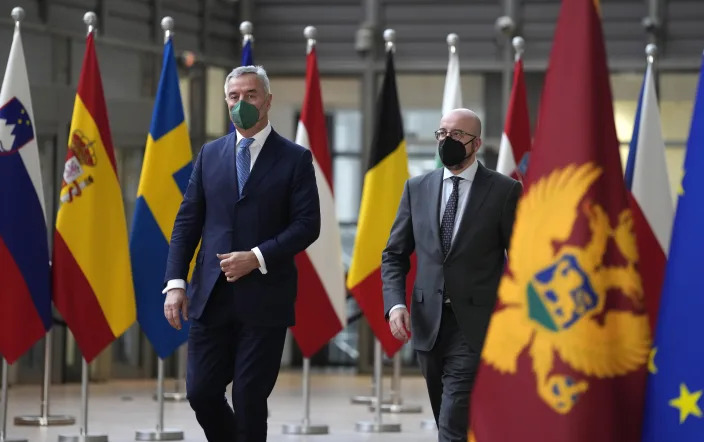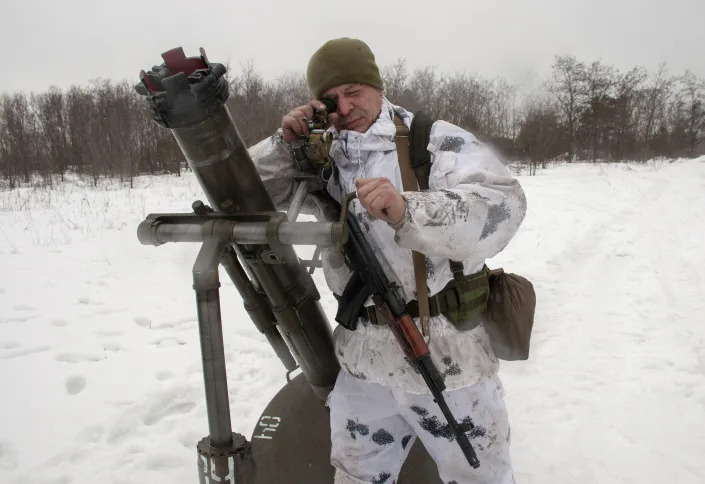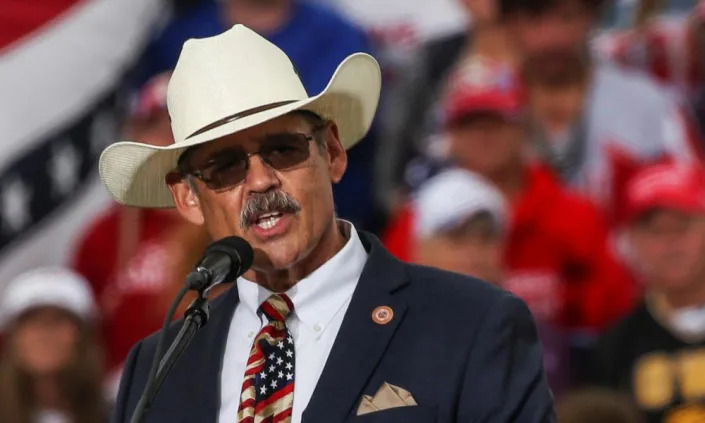Associated Press
Putin recognizes independence of separatist Ukraine regions in possible prelude to invasion
February 21, 2022
Move could trigger harsh sanctions from West; Russian military says it killed five suspected ‘saboteurs’ who crossed from Ukraine
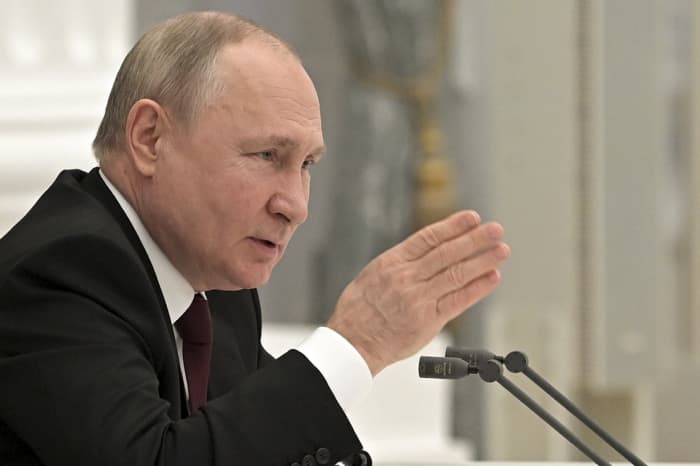
MOSCOW — Russian President Vladimir Putin on Monday recognized the independence of separatist regions in eastern Ukraine and paved the way to provide them military support — a direct challenge to the West that will fuel fears that Russia could imminently invade Ukraine.
The carefully staged move announced in the Kremlin could lead to new sanctions on Russia and flies in the face of European efforts for a diplomatic solution to the escalating crisis, which has brought East-West relations to a new low and jeopardized trade. Britain’s prime minister called it a “breach of international law.”
The European Union immediately said it will slap sanctions on those involved in recognizing Ukraine’s breakaway regions as independent.
It came amid a spike in skirmishes in the eastern regions that Western powers believe Russia could use as a pretext for an attack on the western-looking democracy that has defied Moscow’s attempts to pull it back into its orbit.
Putin justified his decision in a far-reaching, pre-recorded speech blaming NATO for the current crisis and calling the U.S.-led alliance an existential threat to Russia. Sweeping through more than a century of history, he painted today’s Ukraine as a modern construct that is inextricably linked to Russia. He charged that Ukraine had inherited Russia’s historic lands and after the Soviet collapse was used by the West to contain Russia.
Ukrainians shrugged off the move as meaningless, but it remains a fundamental blow to their country eight years after fighting erupted the Donetsk and Luhansk regions between Russia-backed separatists and Ukrainian forces.
After his speech, Putin signed decrees in the Kremlin recognizing those regions’ independence and called on lawmakers to approve measures paving the way for military support.
Until now, Ukraine and the West have accused Russia of supporting the separatists, but Moscow has denied that, saying that Russians who fought there were volunteers.
European leaders had urged Putin to not to recognized the regions’ independence, and the EU foreign policy chief threatened possible sanctions if he did. Ukraine’s president convened an emergency meeting of top security officials.
According to the Kremlin, German Chancellor Olaf Scholz and French President Emmanuel Macron voiced “disappointment with such a development” but also “readiness to continue contacts.”
At an earlier meeting of Putin’s Security Council, a stream of top Russian officials argued for recognizing the separatist regions’ independence. At one point, one slipped up and said he favored including them as part of Russian territory — but Putin quickly corrected him.
With an estimated 150,000 Russian troops massed on three sides of Ukraine, the U.S. has warned that Moscow has already decided to invade. Still, the American and Russian presidents tentatively agreed to a possible meeting in a last-ditch effort to avoid war.
If Russia moves in, the meeting will be off, but the prospect of a face-to-face summit resuscitated hopes that diplomacy could prevent a devastating conflict, which would result in massive casualties and huge economic damage across Europe, which is heavily dependent on Russian energy.
European Union foreign policy chief Josep Borrell said at an EU foreign ministers meeting in Brussels that, “If there is a recognition, I will put sanctions on the table and the (EU) ministers will decide” whether to agree to impose them.
Even as the diplomatic efforts inched forward, potential flashpoints multiplied. Sustained shelling continued Monday in Ukraine’s east. Unusually, Russia said it had fended off an “incursion” from Ukraine — which Ukrainian officials denied. And Russia decided to prolong military drills in Belarus, which could offer a staging ground for an attack on the Ukrainian capital, Kyiv.
Earlier Monday, leaders of the separatist regions released televised statements pleading with Putin to recognize them and sign treaties that would allow for military aid to protect them from what they described as an ongoing Ukrainian military offensive. Russia’s lower house of parliament made the same plea last week.
Ukrainian authorities deny launching an offensive and accuse Russia of provocation.
Putin’s announcement shatters a 2015 peace deal signed in Minsk requiring Ukrainian authorities to offer a broad self-rule to the rebel regions, which marked a major diplomatic coup for Moscow.
The deal was resented by many in Ukraine who saw it as a capitulation, a blow to the country’s integrity and a betrayal of national interests. Putin and other officials argued Monday that Ukrainian authorities have shown no appetite for implementing it.
With the prospect of war looming, French President Emmanuel Macron scrambled to broker a meeting between U.S. President Joe Biden and Putin, who denies he plans to attack Ukraine.
Russia says it wants Western guarantees that NATO won’t allow Ukraine and other former Soviet countries to join as members — and Putin said Monday that a simple moratorium on Ukraine’s accession wouldn’t be enough. Moscow has also demanded the alliance halt weapons deployments to Ukraine and roll back its forces from Eastern Europe — demands flatly rejected by the West.
Macron’s office said both leaders had “accepted the principle of such a summit,” to be followed by a broader meeting that would include other “relevant stakeholders to discuss security and strategic stability in Europe.”
The language from Moscow and Washington was more cautious, but neither side denied a meeting is under discussion.
During the Kremlin meeting, several top officials spoke skeptically about a possible summit, saying it was unlikely to yield any results.
U.S. national security adviser Jake Sullivan, meanwhile, said the administration has always been ready to talk to avert a war — but was also prepared to respond to any attack.
“So when President Macron asked President Biden yesterday if he was prepared in principle to meet with President Putin, if Russia did not invade, of course President Biden said yes,” he told NBC’s “Today” show on Monday. “But every indication we see on the ground right now in terms of the disposition of Russian forces is that they are, in fact, getting prepared for a major attack on Ukraine.”
Since Thursday, shelling has spiked along the tense line of contact that separates Ukrainian forces and Russian-backed rebels in Ukraine’s eastern industrial heartland of Donbas. Over 14,000 people have been killed since conflict erupted there in 2014, shortly after Moscow annexed Ukraine’s Crimean Peninsula.
Ukraine and the separatist rebels have traded blame for massive cease-fire violations with hundreds of explosions recorded daily.
While Russia-backed separatists have charged that Ukrainian forces were firing on residential areas, Associated Press journalists reporting from several towns and villages in Ukrainian-held territory along the line of contact have not witnessed any notable escalation from the Ukrainian side and have documented signs of intensified shelling by the separatists that destroyed homes and ripped up roads.
Some residents of the main rebel-held city of Donetsk described sporadic shelling by Ukrainian forces, but they added that it wasn’t on the same scale as earlier in the conflict.
The separatist authorities said Monday that at least four civilians were killed by Ukrainian shelling over the past 24 hours and several others were wounded. Ukraine’s military said two Ukrainian soldiers were killed over the weekend, and another serviceman was wounded Monday.
Ukrainian military spokesman Pavlo Kovalchyuk insisted that Ukrainian forces weren’t returning fire.
In the village of Novognativka on the Ukraine government-controlled side, 60-year-old Ekaterina Evseeva, said the shelling was worse than at the height of fighting early in the conflict.
“We are on the edge of nervous breakdowns. And there is nowhere to run,” she said, her voice trembling.
In another worrying sign, the Russian military said it killed five suspected “saboteurs” who crossed from Ukraine into Russia’s Rostov region and also destroyed two armored vehicles and took a Ukrainian serviceman prisoner. Ukrainian Border Guard spokesman Andriy Demchenko dismissed the claim as “disinformation.”
Amid the heightened invasion fears, the U.S. administration sent a letter to the United Nations human rights chief claiming that Moscow has compiled a list of Ukrainians to be killed or sent to detention camps after the invasion. The letter, first reported by the New York Times, was obtained by the AP.
Kremlin spokesman Dmitry Peskov said the claim was a lie and no such list exists.

